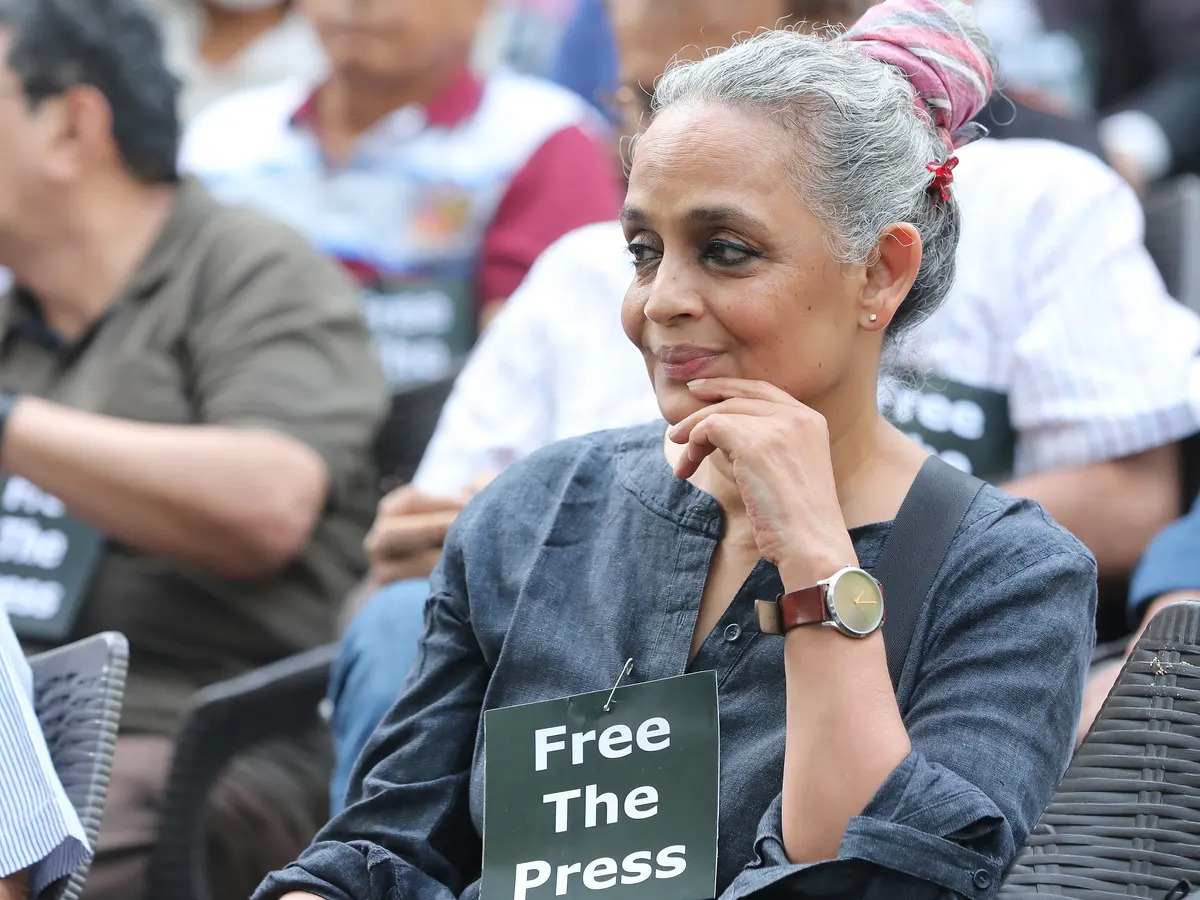Charges against Booker Prize winner Arundhati Roy mark the latest crackdown on free speech in India, led by Prime Minister Narendra Modi’s government. Arundhati Roy, attending a recent journalist club protest in New Delhi, wore a shirt with a “Free the Press” notice pinned to it. The Indian authorities have filed charges against the renowned novelist Arundhati Roy, related to public comments she made 13 years ago about the volatile Kashmir region.
This action is part of an escalating clampdown on free expression by Prime Minister Narendra Modi’s government. The charges have also been brought against Kashmiri law professor Sheikh Showkat Hussain. The charges encompass various sections of Indian law, including those related to provocative speech and the promotion of hostility between different groups.
While the possibility of a more severe sedition charge was considered, it wasn’t pursued due to ongoing deliberations about the validity of the colonial-era sedition law by India’s top court. The complaint, which dates back to October 2010, was filed by a right-wing Kashmiri Hindu activist against speakers at a conference on Kashmir. The reasons for acting on this complaint now, over a decade later, remain unclear.
his action against Arundhati Roy, a prominent critic of Prime Minister Modi, comes shortly after the New Delhi police conducted raids on the homes and offices of numerous journalists associated with an online news portal known for its criticism of the Indian government. The authorities had previously targeted the organization NewsClick but intensified their crackdown following an article in The New York Times linking an American tech mogul financing the site to the Chinese government. On Tuesday, a New Delhi court denied bail to the founder of NewsClick and another person associated with the site, ordering their detention for 10 days.
They face charges under the stringent Unlawful Activities Prevention Act, a law often leading to prolonged pretrial detentions. Regarding the Kashmir conference case, Sheikh Showkat Hussain stated that he hadn’t received formal communication about the charges, while Arundhati Roy said she would consult with her lawyer before commenting. Two other individuals accused in the same complaint, Syed Ali Shah Geelani and Syed Abdul Rahman Geelani, have passed away, despite being unrelated.
The charges brought against Arundhati Roy, a celebrated novelist and vocal critic of Prime Minister Narendra Modi’s government, represent a concerning trend in India’s stance on free expression. This legal action is not an isolated incident but rather part of a broader crackdown on dissent and critical voices in the country.
The case’s roots in a 2010 complaint, filed by a right-wing Kashmiri Hindu activist, raise questions about the timing of these charges. The decision not to pursue the more severe sedition charge reflects the ongoing debate surrounding India’s colonial-era sedition law.
As we witness these developments, it becomes clear that the struggle for free expression in India is far from over. The international community’s attention and support for those facing such challenges are essential in upholding the principles of democracy and safeguarding individual liberties in a diverse and vibrant nation like India. It remains to be seen how these legal actions will unfold and what implications they may have for the state of free speech and democracy in India.


